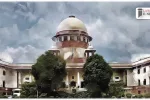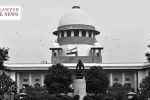Supreme Court Warns Against Imposing Onerous Conditions for Anticipatory Bail, Stresses Balance Between Personal Liberty and Fair Investigation

“The process of criminal law cannot be utilised for arm-twisting and money recovery, particularly while opposing the prayer for bail.” In a significant judgment delivered on July 4, 2023, the Supreme Court of India cautioned against the growing trend of imposing onerous and excessive conditions for the grant of anticipatory bail. The bench comprising Hon’ble Justice S. Ravindra Bhat and Hon’ble Justice Dipankar Datta emphasized the need to strike a balance between personal liberty and the right to a fair investigation.
The case at hand involved an appeal filed by Ramesh Kumar against the State of NCT of Delhi. The appellant had been accused under Section 420 of the Indian Penal Code, 1860, and had sought anticipatory bail under Section 438 of the Code of Criminal Procedure, 1973. The High Court had granted bail to the appellant and another accused, subject to the condition of depositing a significant sum of money.
Expressing concern over the transformation of judicial proceedings into processes for recovery of allegedly cheated money, the Supreme Court reminded the high courts and sessions courts not to be swayed by submissions made by the accused’s counsel regarding the deposit or repayment of any amount as a prerequisite for bail.
The apex court highlighted that conditions for anticipatory bail should be reasonable, just, and not excessive. It underscored that the purpose of bail is not to settle civil disputes or recover disputed dues but to ensure the accused’s appearance and unhindered completion of investigation/trial while maintaining the safety of the community.
Referring to previous landmark judgments, the court emphasized that denial of bail amounts to a deprivation of personal liberty and should not be subject to unnecessary restrictions. The court further clarified that conditions imposed must be fair, just, and reasonable, avoiding any imposition of irrelevant or excessive conditions.
The Supreme Court also noted that in exceptional cases, where public money misappropriation is alleged, the court may consider whether the accused should be allowed to deposit the amount before the application for bail is considered. However, this approach would not be warranted in cases of private disputes involving the recovery of money.
While considering the facts of the present case, the court observed discrepancies in the amount mentioned for deposit and the cheques received by the appellant. It stressed that the process of criminal law should not be used to settle civil disputes and directed the High Court to re-consider the application for pre-arrest bail without imposing the onerous condition.
The Supreme Court’s judgment serves as a reminder to courts to exercise their discretion carefully while granting anticipatory bail and to avoid imposing unreasonable and excessive conditions that go beyond the purpose of bail. The decision reiterates the significance of protecting personal liberty while ensuring a fair investigation process.
Date of Decision: July 4, 2023
RAMESH KUMAR vs THE STATE OF NCT OF DELHI





